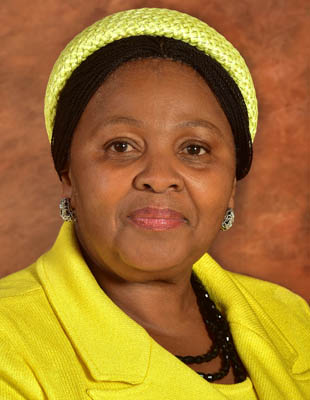South Africa’s political landscape was rocked by scandal as former Parliament Speaker Nosiviwe Mapisa-Nqakula faced charges of corruption and money laundering. Mapisa-Nqakula, a prominent figure in the African National Congress (ANC) party, resigned from her post amidst accusations of soliciting bribes during her tenure as defence minister.
Appearing before a court in Pretoria, Mapisa-Nqakula was formally charged with 12 counts of corruption and one count of money laundering. The National Prosecuting Authority stated that she allegedly solicited gratifications totalling over 4.5 million rands (£190,000) from a former military contractor, with a state witness confirming a 2.1 million rand bribe.
Who is Mapisa-Nqakula
The 67-year-old veteran of the African National Congress (ANC) party became speaker in 2021. Before that, she served as defence minister for seven years.
Last week, Ms Mapisa-Nqakula’s lawyers filed a request for a court order to prevent her arrest, saying it would infringe on her dignity.
Despite maintaining her innocence and describing the case against her as weak, Mapisa-Nqakula was granted bail of 50,000 rand and was ordered to surrender her passport and avoid contact with state witnesses. She resigned as speaker and as a lawmaker, citing the need to uphold the integrity of parliament and focus on the investigation against her.
The scandal comes at a critical time for the ANC, just ahead of national elections in May. The party, facing accusations of official corruption and mismanagement, is expected to see its share of the vote drop below 50% for the first time since 1994, potentially leading to a coalition government.
What are the allegations?
Mapisa-Nqakula served as defence minister from 2014 to 2021 before becoming speaker, a move that drew criticism from the opposition due to perceived incompetence in handling deadly unrest. Her resignation and the charges against her underscore the challenges facing South Africa as it grapples with political turmoil and economic uncertainty.
The accusations against Mapisa-Nqakula involve her alleged solicitation of bribes totalling $120,000 (£96,000) from the owner of a company. These demands were reportedly made in exchange for securing a tender to transport army equipment from another location on the continent back to South Africa.
Such actions, if proven true, would suggest a serious breach of ethical and legal standards, as public officials are expected to uphold transparency and integrity in their dealings, especially when it comes to public contracts and tenders.
The case highlights the ongoing battle against corruption in South Africa and the need for accountability among public officials. As the country prepares for elections, the outcome will be closely watched as a barometer of public sentiment and a test of the ANC’s ability to address governance issues.


